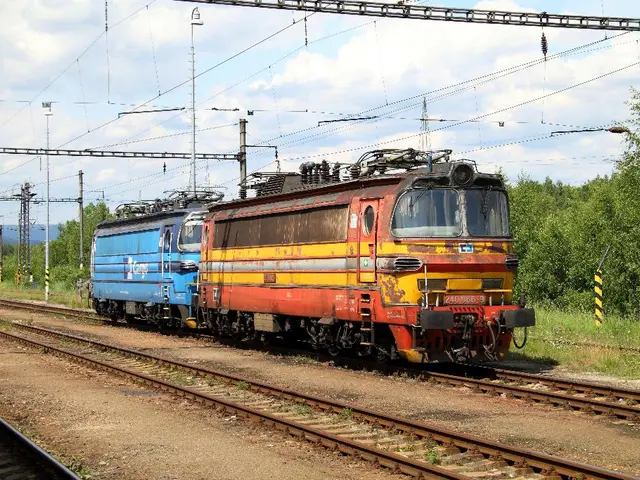Toyota Decisions Not to Increase Prices Due to Tariffs Unsustainable
The tariffs imposed by the Trump administration on foreign-made automobiles have significantly increased average transaction prices, negatively affected auto suppliers' profitability, and disrupted the global automotive supply chain. This is evident in the case of Toyota Motor North America.
Toyota, a leading automaker in North America, has seen a substantial hit to its profitability due to the increased costs from tariffs on imports. The company lowered its fiscal 2025 operating profit forecast from 3.8 trillion yen to 3.2 trillion yen, attributing an estimated 1.4 trillion yen negative impact to the tariffs. Despite robust sales momentum, the tariff-induced cost increases pressured Toyota’s net profit, expected to shrink for the second consecutive year.
Across the industry, tariffs have added several thousand dollars per imported vehicle on average. For instance, Cox Automotive estimated tariff costs per vehicle in 2025 to be approximately $4,000 for Korean imports, $8,500 for EU imports, and $4,800 for vehicles imported from Mexico. This substantially increased cost base has compressed margins and put pressure on suppliers and dealers as well.
The tariffs have also disrupted established supply chain efficiencies, particularly for vehicles and parts sourced from Mexico. This has had ripple effects through the supply chain, requiring many suppliers and manufacturers to reassess sourcing and pricing strategies.
Toyota Motor North America's COO, Mark Templin, has stated that President Trump's tariffs on foreign-made automobiles are not sustainable without significant price increases. He also emphasised that levies on parts will negatively impact the automotive supply chain, leading to higher prices, lower vehicle sales, and more expensive vehicle repairs for customers.
Approximately half of the vehicles Toyota sells in the U.S. are produced outside its borders, including Mexico, Canada, and Japan. Templin believes that auto suppliers are more vulnerable to tariffs than automakers due to their lack of capital.
Despite the challenges, Toyota has not yet significantly increased retail prices on its foreign-made models such as Toyota Tacoma, RAV4, Corolla, and 4Runner since the tariffs were implemented.
The Trump Administration aims to eliminate trade deficits and incentivize foreign companies to locate more manufacturing in the U.S. through tariffs. However, the increased costs have led to criticism, with President Trump himself being criticised for his suggestions that foreign countries pay the tariffs to the U.S. Treasury.
In a related development, Ford is planning to launch a new $30,000 BEV pickup with modular assembly in 2027. This move could be seen as a response to the challenges posed by the tariffs, as it aims to reduce reliance on imported parts and increase domestic production.
In conclusion, Trump's auto tariffs have led to higher average transaction prices on foreign-made automobiles, reduced profitability for automakers such as Toyota, and introduced significant challenges across the global auto supply chain by increasing imported component and vehicle costs, thereby forcing strategic adjustments within North American operations and suppliers.
Read also:
- Unchecked Management of HP Dams Leads to Environmental Disaster: RTI Reveals
- Impact of Trump's Enforced Russia Sanctions Could Compel Putin's Decision-Making
- Nordstrom taps prominent New York residents for their second advertising campaign in the city.
- Harnessing Magnetism's Potential: Revolutionizing Energy Production for a World Transformed








